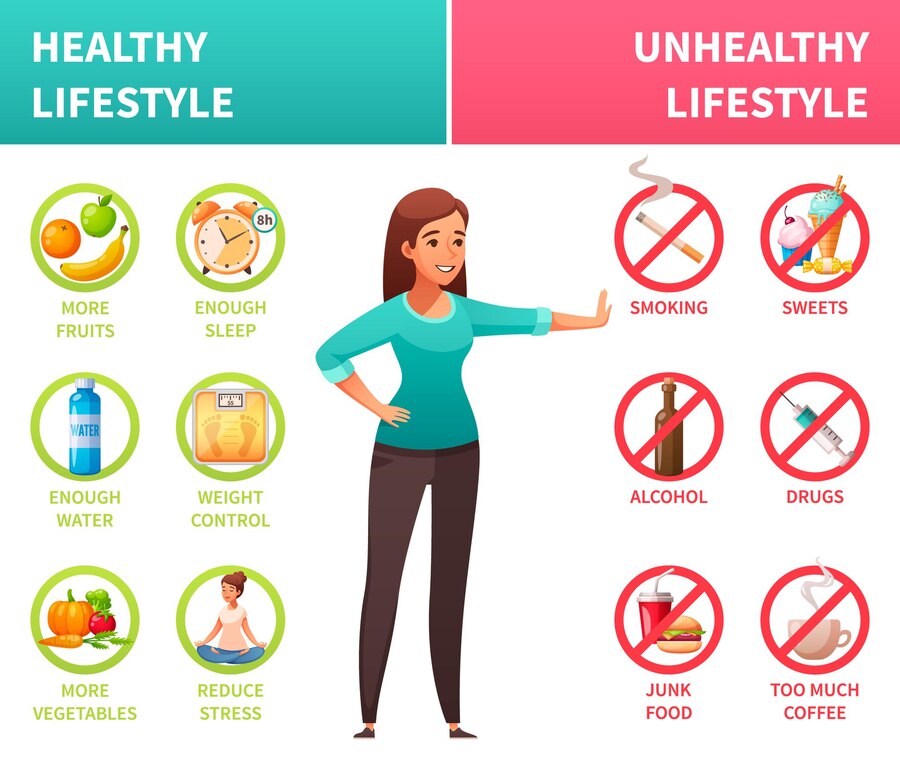Daily self-care is crucial for reducing stress and enhancing your mental and emotional well-being. By incorporating daily self-care habits into your routine, you can experience lasting positive changes. In this article, we will explore the best daily self-care practices to reduce anxiety and boost happiness.
Good Habits for Self-Care

Self-care involves not only physical actions but also emotional and mental well-being. Consequently, adopting good habits in these areas can significantly improve our quality of life.
1. Practice Gratitude
Spending a few minutes a day reflecting on the good things in your life can help maintain a positive attitude and reduce stress. For instance, keeping a gratitude journal is an excellent way to remember the positives and focus on what truly matters.
2. Establish a Sleep Routine
Good sleep is essential for mental and physical health. Thus, try to go to bed and wake up at the same time every day to improve your rest. Additionally, avoid using electronic devices before bedtime and create a sleep-friendly environment.
3. Eat Well
Consuming nutritious foods not only strengthens your body but also improves your mood and energy levels. In other words, a balanced diet with fruits, vegetables, proteins, and healthy carbohydrates can help you stay energized and avoid emotional lows.
4. Engage in Physical Activity
Exercise helps release endorphins, known as the happiness hormones. Whether it’s walking, dancing, doing yoga, or playing a sport, staying active will help you reduce anxiety and enhance your overall well-being. Furthermore, regular exercise contributes to better sleep and increased self-confidence.
5. Make Time for What You Love
Reading, painting, listening to music, or any activity you enjoy can serve as an outlet for daily stress. Therefore, identify what brings you joy and make sure to include it in your routine.
6. Meditate and Breathe Deeply
Breathing techniques and meditation can calm the mind and improve your emotional balance. As a result, dedicating a few minutes each day to meditation or mindful breathing can help you cope with stress more clearly.
7. Surround Yourself with Positive People
Social support is essential for our happiness. For this reason, spend time with people who bring you positive energy and avoid those who drain your enthusiasm. Maintaining healthy relationships improves your emotional and mental well-being.
8. Celebrate Your Achievements
Recognizing your progress, no matter how small, boosts self-confidence and fosters an optimistic mindset. In fact, every step counts, and valuing yourself is an important form of self-care.
9. Disconnect from Work
Setting boundaries between personal and professional life is crucial for reducing stress. Therefore, make sure to take breaks and avoid bringing work home excessively.
10. Learn Something New
Keeping your mind active by learning new skills or acquiring knowledge can boost your self-esteem and make you feel more motivated. Moreover, continuous learning enhances cognitive function and provides a sense of accomplishment.
Bad Habits to Avoid

Just as there are habits that promote well-being, there are also those that can negatively impact your mental, emotional, and physical health. Consequently, avoiding them is key to maintaining a balanced lifestyle.
1. Neglecting Rest
Sleeping too few hours or having an irregular sleep schedule affects your energy levels and mood. In addition, lack of sleep can decrease productivity and increase stress levels.
2. Eating Unhealthy Foods
Excess sugar, saturated fats, and processed foods can harm your physical and mental health. Similarly, poor eating habits can lead to fatigue, digestive issues, and mood swings.
3. Living a Sedentary Lifestyle
Not moving enough can increase stress, anxiety, and long-term health problems. In fact, lack of physical activity is linked to chronic diseases and a low mood.
4. Overloading Yourself with Responsibilities
Not knowing how to say “no” and taking on too many tasks can lead to physical and mental exhaustion. Therefore, it’s important to learn to delegate and set priorities.
5. Spending Too Much Time on Screens
Excessive use of technology can affect your sleep, concentration, and emotional well-being. For that reason, setting limits on screen time can help improve your quality of life.
6. Isolating Yourself Socially
Avoiding contact with friends and family can increase feelings of loneliness and stress. Instead, maintaining interpersonal relationships is key to happiness and emotional health.
7. Neglecting Your Emotional Health
Ignoring your emotions and not seeking support when needed can impact your well-being in the long run. On the other hand, talking to someone you trust or seeking professional help can be very beneficial.
8. Excessive Procrastination
Delaying important tasks can create anxiety and affect productivity. To avoid this, organizing yourself and setting time limits for each activity can reduce pressure and increase motivation.
9. Comparing Yourself to Others
Constantly comparing yourself to others can lead to feelings of dissatisfaction and frustration. Instead, focus on your own progress and celebrate your achievements without measuring them against others.
10. Not Staying Hydrated
Dehydration can affect your energy levels, concentration, and overall well-being. As a result, make sure to drink enough water throughout the day to keep your body and mind balanced.
Daily self-care plays a significant role in improving your quality of life. Small daily self-care changes can lead to better mental and physical health, reducing stress and increasing happiness. Start practicing daily self-care today for a more balanced life.





